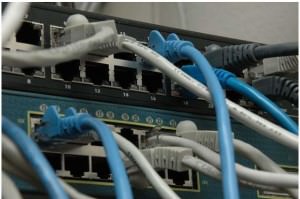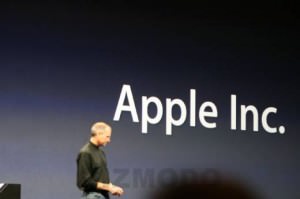Harnessing The Power Of Mining Management Software In The Bitcoin Ecosystem
For technologists, it is fascinating to observe the continuous evolution of the Bitcoin ecosystem. One of the most intriguing aspects of this sphere is the domain of Bitcoin mining. While Bitcoin mining has often been met with scepticism due to its energy consumption, it is worth highlighting that significant strides have been made to optimise the process, ensuring that it becomes more efficient and sustainable. Among these developments, the emergence of advanced mining management software has proven to be a game-changer.
Mining management software is an integral part of the Bitcoin mining ecosystem, optimising operations and ensuring maximum profitability. These sophisticated applications help miners monitor and manage their operations, providing data-driven insights to make the best strategic decisions.
One of the key ways that mining management software contributes to the Bitcoin ecosystem is by enhancing operational efficiency. Miner monitoring software suites are designed to optimise mining operations by managing hardware performance, identifying bottlenecks, and facilitating prompt and strategic action. They do so by providing real-time tracking and analytics for all the connected mining hardware, allowing miners to easily identify underperforming machines and fix them promptly.
In addition, some software solutions even enables auto-switching algorithms, which automatically direct mining power to the most profitable cryptocurrency, thus boosting earnings.
Bitcoin mining and the environment

Moreover, the software plays a vital role in mitigating the environmental impact associated with Bitcoin mining. By enhancing energy efficiency, these software solutions not only decrease the power consumed per Bitcoin mined but also the carbon footprint of the entire operation. Modern mining management software focuses on fine-tuning mining operations by adjusting power consumption and clock speeds, which can help to optimise hash rate and reduce energy usage.
Miner monitoring for security
Mining management software can also play a key role in enhancing security, an aspect that cannot be taken lightly in this digital age. As Bitcoin operations are constantly under threat from hackers, robust security measures are needed to protect mining rigs. Fortunately, mining management software typically comes equipped with built-in security features that help in thwarting potential threats, including DDoS attacks and unauthorised access. By choosing leading software from the likes of Foreman it is possible to gain genuine peace of mind that risk is being managed effectively.
The software also provides data analysis and reporting capabilities, offering miners actionable insights and the ability to strategize their operations effectively. Through comprehensive data analysis, miners can identify trends and patterns that can help them make informed decisions about scaling operations, purchasing new equipment, and predicting potential profits.
Miner management software also contributes to the democratisation of Bitcoin mining. The software has levelled the playing field, enabling individual miners and small-scale operations to compete with large mining farms. By providing them with advanced tools and features that were once only accessible to large-scale operations, these individuals can now engage in Bitcoin mining more profitably and sustainably.
A dynamic and fast-changing ecosystem
Despite these considerable benefits, it is crucial to note that the mining management software landscape is in constant flux, reflecting the dynamic nature of the Bitcoin ecosystem itself. As technologies advance and the Bitcoin network evolves, the demand for more efficient, user-friendly, and robust software solutions continues to grow. For instance, the advent of artificial intelligence and machine learning technologies holds significant promise in further optimising mining operations and boosting profits.
The future likely holds more advanced mining management software equipped with next-gen technologies, including advanced AI, blockchain analytics, and predictive modelling. These advancements are expected to make Bitcoin mining more efficient, profitable, and accessible, thus contributing positively to the entire Bitcoin ecosystem.
Getting started in Bitcoin mining
Whether you are an absolute novice and new to the world of Bitcoin mining or you’ve worked in the field for several years, the fundamentals remain the same.
Get a Bitcoin Wallet: Before you start mining, you need a place to store your mined Bitcoins. There are various types of Bitcoin wallets available, from online services to hardware solutions.
Choose Your Hardware: For serious mining, you would need an ASIC (Application-Specific Integrated Circuit) miner, which is a specialized piece of hardware designed specifically for mining cryptocurrencies. This hardware can be costly, and its power consumption could lead to high electricity bills.
Select a Mining Pool: Mining on your own can be difficult due to the high complexity of the problems to be solved. By joining a mining pool, you’re teaming up with other miners to solve these problems together and share the rewards.
Install Mining Software and Miner Management Software: Mining software is used to control and oversee your mining hardware – allowing you to manage and monitor your mining rigs, giving you control over fan speeds, voltages, and clocking, and providing you with an interface to track your mining performance.
Who and what are the stakeholders in the Bitcoin ecosystem?
The Bitcoin ecosystem refers to the comprehensive structure and network of various stakeholders and systems that contribute to the functioning, maintenance, development, and utilization of Bitcoin as a digital currency and technology. The ecosystem is decentralized and operates on a peer-to-peer network, without the need for intermediaries. The components of the Bitcoin ecosystem include:
- Bitcoin Blockchain – the public ledger where all transactions are stored
- Bitcoin (BTC) – the digital currency itself
- Miners – the computational power to process transactions
- Nodes – the computers connected to the network
- Wallets – the digital storage system for Bitcoin
- Exchanges – the platforms where cryptocurrencies can be sold
- Users – the individuals or entities that transact
- Developers – those responsible for maintaining and improving the Bitcoin protocol
- Regulators and Legal Framework
- Merchants – businesses that accept Bitcoin as a form of payment
Together, all these parts create a vibrant, diverse, and robust ecosystem around Bitcoin, facilitating its use and propagation worldwide.
Conclusion
To conclude, mining management software plays a critical role in the Bitcoin ecosystem, enhancing efficiency, boosting profitability, and minimising environmental impact. By harnessing the power of these software solutions, Bitcoin miners can ensure they are equipped to navigate the challenges and seize the opportunities of this dynamic digital landscape.
It will be exciting to see how this space evolves in the coming years and how it shapes the future of Bitcoin mining.





